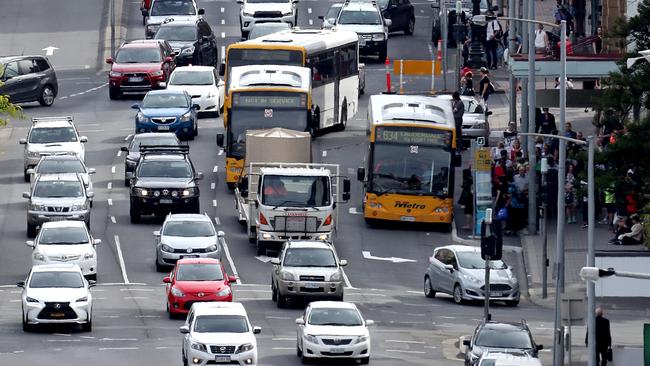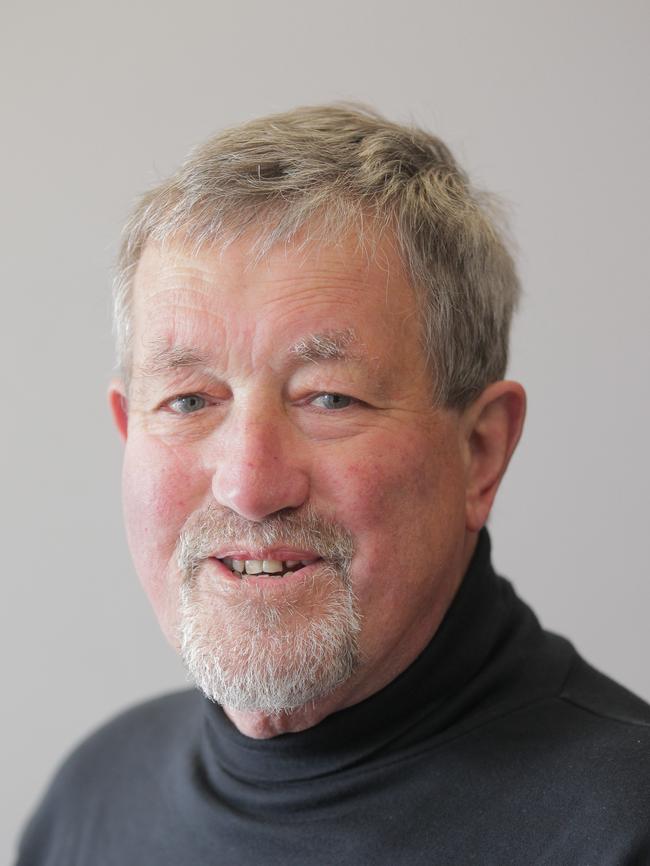City deal: Bid to unlock Hobart’s gridlock
PLANS for light rail, ferry services and additional bus routes will all be considered under federal City Deal, in a bid to alleviate Hobart’s growing traffic chaos.

Lifestyle
Don't miss out on the headlines from Lifestyle. Followed categories will be added to My News.
PLANS for light rail, ferry services and additional bus routes will all be considered in a bid to alleviate Hobart’s growing traffic chaos.
Speaking at the Heads of Agreement signing yesterday to progress a City Deal, Prime Minister Malcolm Turnbull said transport was a big agenda in every capital city and Hobart was certainly no exception.
The City Deal will include discussion of a Greater Hobart Transport Vision which will consider ways to support the future use of the northern suburbs rail corridor, as well as ferry transport and busways.
The Mercury’s Tasmania 2022 campaign during the past two weeks has provoked strong responses from readers on the topic of Hobart’s road congestion with 34.97 per cent of respondents regarding light rail as a “very important” option alongside a River Derwent ferry network (36.73 per cent).
“I’ve been familiar with the work on light rail for sometime now,” said Mr Turnbull yesterday, referring to work undertaken by West Australian professor Peter Newman on a link between Macquarie Point and Glenorchy along the old train line.

A sustainability expert at Curtin University, Prof Newman said Hobart “should be modelling its plans on the Gold Coast light rail, as the cities are of similar size” and the only real obstacle Hobart faces in making this a reality is “purely a political one”.
Federal Cities Minister Paul Fletcher said yesterday the introduction of a light rail system from the city to Glenorchy would open up and facilitate controlled urban growth and provide much needed connectivity to the CBD. But transport economist Bob Cotgrove says buses are more flexible and have a better chance of serving passenger needs than light rail.
“Like all rail systems, light rail systems are confined to particular fixed tracks, timetables and stops and that limits their ability to service the population,” he said.
“In a city the size of Hobart, buses are the preferred option, but I disagree with the current operation of the government bus service.”
Mr Cotgrove said bus services should be devolved and privatised.
“It should be much simpler. The municipalities should be managing bus services in their areas funded by their ratepayers.
“Residents should not have to pay for services in other areas.”
Mr Cotgrove said busways — exclusive roads with tracks or grooves for modified buses — had also been suggested for the northern rail corridor, but they offered people narrow-optioned journeys which did not equate with modern living.
And, he said, while ferry services had a role to play in tourism, the demand for commuter ferries was not evident — even if parking hubs were built on the eastern shore.
Ferry advocate and Hobart alderman Philip Cocker said discussions were continuing between the council and local stakeholders over River Derwent transport. A roundtable meeting of potential stakeholders was held in July and Ald Cocker intends to follow up with a smaller group of stakeholders in the future.
However, the question unanswered is just who will pay for the service and landing jetties.


